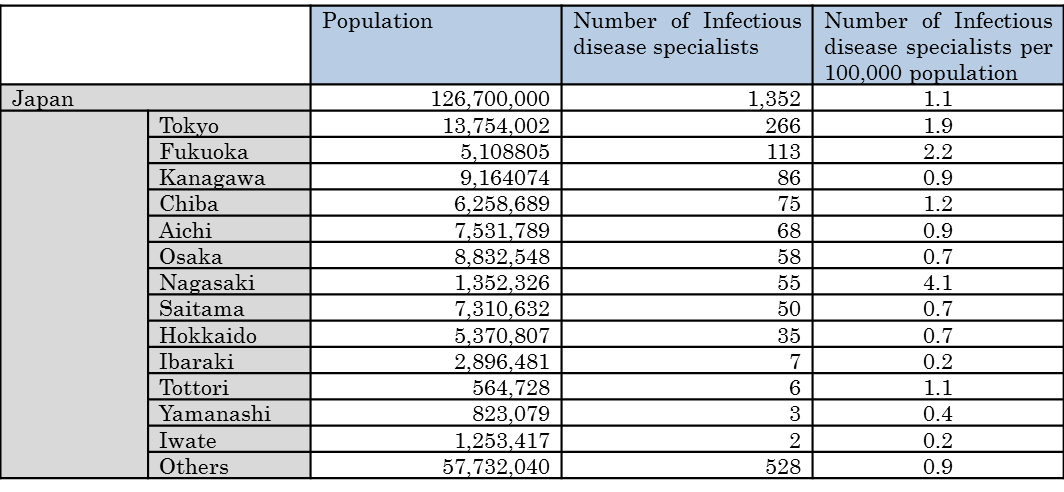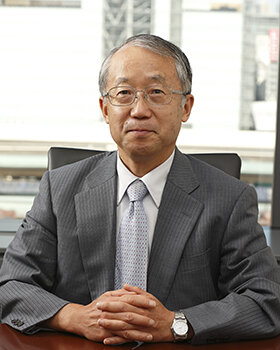Column Finance and the Social Security System 2018.01.30
【Aging, safety net and fiscal crisis in Japan】No.21: Lack of infectious disease specialists
Prime Minister Abe has pledged that Japan will assume leadership in countering infectious diseases worldwide. However, Japan itself is facing challenges due to lack of specialists to tackle infectious diseases. According to the Japan Association of Infectious Diseases, which is committed to training specialists, there were 1,352 infectious disease specialists, as of December 2017. As Table 1 shows, the national average is only 1.1 specialists per 100,000 population. Even in the Ibaraki prefecture, which is close to Tokyo, there are 0.2 specialists per 100,000 population. The Japan Association of Infectious Diseases points out that the country needs at least 3,000 infectious disease specialists. Nagasaki prefecture has as many as 4.1 specialists per 100,000 population because it has the Institute of Tropical Medicine at National Nagasaki University, which is the nodal center of infectious disease research.
Elderly people with weak immunity are more vulnerable to infection. Therefore, infections are often news not only in hospitals, but also in facilities for the elderly. General physicians lack knowledge about infectious diseases. When my father was living in a facility for the elderly, a practitioner affiliated with the facility said, "This man is suspected of being infected with MRSA. No one should not go near him," and then ran away without inspecting my father. Another doctor, whom I asked to examine my father, confirmed that he was not infected with MRSA.

